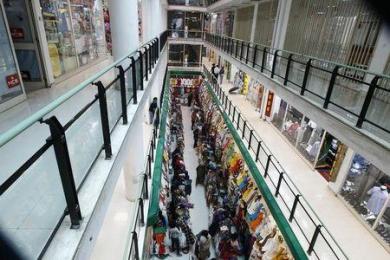Research: Ethiopia to become world’s fastest-growing economy
By Tesfa-Alem Tekle
September 17, 2015 (ADDIS ABABA) –A report released by a research project, said that Ethiopia is on course to become world’s fastest growing economy.

The case study highlighted major strides in massive agricultural investment, a sector which employs three in four Ethiopians, and a government committed to pro-poor spending to halve its poverty.
It also explores progress achieved in material wellbeing in Ethiopia, measured by reduction in income poverty, and two key contributors to material wellbeing: education and employment.
“Ethiopia’s stability and consequent ability to make long-term plans and investments in education, agriculture and infrastructure over the past 20 years has allowed the country to make great leaps in development” the report said.
Some critics consider the stability in the country was the outcome of the government’s systematic repressive practices, or at least of the restricted contestability of national and local politics.
However, the horn of Africa’s nation, according to the report, has experience over the past two decades contains significant lessons that can be applicable in different country contexts.
Ethiopia has managed to decline extreme poverty vastly making it one of the successful countries in the world in the fight against poverty.
According to the report, poverty has fallen to 37% from 63% between 1995 and 2011while maintaining low level of income inequality.
Also, the report points that the agricultural sector, which the country’s economy is hugely depend on, has cut poverty by 7% between 2005 and 2011.
Maintaining teams of agronomists across vast rural areas to boost productivity by recommending best agricultural practice and scientific innovation was mentioned as one of the practices the country used to achieve development.
“Further, a doubling of Ethiopia’s road network in two decades, which has allowed more farmers to bring their produce to market,” said the report.
The notable takeaway lessons from Ethiopia’s experience in sustainable developmental goals is firstly, “Centering government policy on a single goal – poverty reduction – and taking a multidimensional approach can encourage ministries to work more comprehensively and consistently”
The second strategy the report mentioned is, “Integrating social sectors into broader economic planning and high rates of pro-poor spending benefit the economy”.
Thirdly, “Long-term planning and a clear division of responsibilities can build the foundation for broader transformation”
Development Progress is an ODI project which is funded by the Bill & Melinda Gates Foundation. It is a four-year research project that aims to measure, understand and communicate progress in development.
ODI is the UK’s leading independent think tank on international development and humanitarian issues.
(ST)
